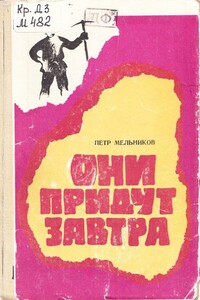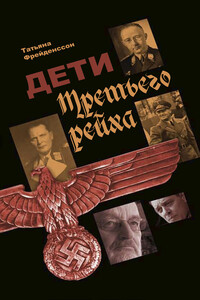The Boy Scouts In Russia - [5]
In his sleep he had many dreams, but the most insistent one was made up of the tramp of heavy feet and the blowing of bugles and the rattling of horses' feet. And this wasn't a dream at all, for when he awoke it was to find a soldier shaking him roughly by the shoulders, and ordering him to get up. And outside were all the sounds of his dream. The sun was high for he had been asleep for several hours. So he got up willingly enough, and hurried his dressing because he remembered what Ernst had told him. Then he followed the soldier downstairs, and found himself the prisoner in an impromptu sort of court-martial.
Really, it wasn't as bad as that. Considering that he had no passports and nothing, in fact, to show who he was, and that no responsible person could vouch for him, he was very lucky. It was because he was a boy, and obviously an American boy, that he got off so easily. For after he had answered a few questions, a major explained the situation to him very punctiliously.
"You must be detained here for two or three days," said the major. "This is an important concentration district, and many things will happen that no foreigner can be allowed to see. We believe absolutely that you are not unfriendly, and that you have no intention of reporting anything you might chance to learn to an enemy. But in time of war we may not take any risks, and you will, therefore, be required to remain in this village under observation.
"Within the village limits you will be as free as if you were at home, in your own country. You will not be allowed to pass them, however, and if you try to do so a sentry will shoot you. As soon as certain movements are completed, you will be at liberty to pass on, on your way to Koenigsberg. I will add to Lieutenant Ernst's advice. When you reach Koenigsberg, after you have reported yourself to the police, wait there until a train can take you to Berlin. It will mean only a few days of waiting, for at Koenigsberg there are already many refugees, and the authorities want to get them to Berlin as soon as the movements of troop trains allow the railway to be reopened for passenger traffic."
Fred agreed to all this. There was nothing else for him to do, for one thing, and, for another, he was by no means unwilling to see whatever there might be to be seen here. He could guess by this time that without any design he had stumbled on a spot that was reckoned rather important by the Germans, for the time being at least, and he had heard enough about the wonderful efficiency of the German army to be anxious to see that mighty machine in the act of getting ready to move.
He did see a good deal, as a matter of fact, that day and the next. It was on the famous Saturday night of the first of August that he had left Virballen. Sunday brought news of a clash with France, far away on the western border, and of the German invasion of Belgium. Monday brought word of a definite declaration of war between Germany and France, and of the growing danger that England, too, might be involved.
And all of Sunday and all of Monday supplies of all sorts poured through the little village in an unceasing stream. Motor cars and trucks were to be seen in abundance, and Fred caught his first glimpse, which was not to be his last, of the wonderful German field kitchens, in the mighty ovens of which huge loaves of bread were being baked even while the whole clumsy looking apparatus was on the move. But it only looked clumsy. Like everything else about the German army, this was a practical and efficient, well tried device.
Then suddenly, early on Tuesday, he was told that he was free to go, or would be by nightfall. And that day all signs of the German army, save a small force of Uhlans, vanished from the village. That evening, refreshed and ready for the road again, Fred set out. And that same evening, though he did not know it until the next day, England entered the war against Germany. CHAPTER III
A STRANGE MEETING
As he walked west Fred noticed, even in the night, a change in the country. It was not that he passed once in a while a solitary soldier guarding a culvert, as he neared a railway, or a patrol, with its twinkling fire, watching this spot or that that needed special guarding. That was part of war, the part of war that he had been able to foresee. It wasn't anything due to the war that made an impression on his mind so much as a sort of thickening of the country. Though he had traveled so short a distance from the Russian border, there seemed to be more people about.
Great houses, rising on high ground, with small, contented looking villages nestling, as it were, under their protection, were frequent. He was, as a matter of fact, in a country of great aristocratic landholders, the great nobles of Prussia, the men who are the real rulers of the country, under the Prussian King, who is also the German Kaiser. And in many of these great houses lights were burning, even after midnight, when all signs of life in the villages had ceased. The country was stirring, and there was more of it to stir. Now from time to time he heard the throbbing hum of an automobile motor. Only one or two of these passed him, going in either direction, on the road along which he was traveling. But there were parallel roads, and he could hear the throbbing motors on these, and often see the pointing shafts of light from their lights, searching out the road before them as they sped along.

В книге рассказывается история главного героя, который сталкивается с различными проблемами и препятствиями на протяжении всего своего путешествия. По пути он встречает множество второстепенных персонажей, которые играют важные роли в истории. Благодаря опыту главного героя книга исследует такие темы, как любовь, потеря, надежда и стойкость. По мере того, как главный герой преодолевает свои трудности, он усваивает ценные уроки жизни и растет как личность.

Это суровое документальное повествование не предназначено для легкого чтения. В нем любознательный читатель найдет для себя немало поучительного, узнает о том, как бывшие красногвардейцы, партизаны и чекисты, во главе с коммунистом В. П. Бертиным, при активном содействии обкома партии и правительства молодой Якутской республики, еще при жизни В. И. Ленина, открывали и осваивали золотоносные месторождения на Алдане, и как самые закаленные и упорные из них в составе первой Верхнеколымской геологоразведочной экспедиции высадились на берег Охотского моря и открыли золотую Колыму. Читатель узнает также о том, как старатели и якуты-проводники помогли Ю. А. Билибину, С. Д. Раковскому и П. М. Шумилову найти в жизни более верную дорогу, чем у их отцов, и стать патриотами своей социалистической Родины, лауреатами Государственной премии. Эта книга — о повседневном будничном героизме советских геологов и золотоискателей.

Герои этой книги – потомки нацистских преступников. За три года журналист Татьяна Фрейденссон исколесила почти полмира – Германия, Швейцария, Дания, США, Южная Америка. Их надо было не только найти, их надо было уговорить рассказать о своих печально известных предках, собственной жизни и тяжком грузе наследия – грузе, с которым, многие из них не могут примириться и по сей день. В этой книге – не просто удивительные откровения родственников Геринга, Гиммлера, Шпеера, Хёсса, Роммеля и других – в домашних интерьерах и без цензуры.

В книге рассказывается история главного героя, который сталкивается с различными проблемами и препятствиями на протяжении всего своего путешествия. По пути он встречает множество второстепенных персонажей, которые играют важные роли в истории. Благодаря опыту главного героя книга исследует такие темы, как любовь, потеря, надежда и стойкость. По мере того, как главный герой преодолевает свои трудности, он усваивает ценные уроки жизни и растет как личность.

Автор, один из фигурантов громкого «театрального дела» режиссёра Кирилла Серебренникова, рассказывает историю своего «сопротивления». Книга эта – одновременно и триллер, и крутой детектив, и готический роман ужасов, это и жесткий памфлет, и автобиография. Но как бы ни определить её жанр, это повествование о стойкости, верности убеждениям и своему делу.

«Чтобы выжить, вам необходимо овладеть искусством выживания, особенно психологическим его аспектом, поскольку от этого в конечном счете и зависит, останетесь вы в живых или погибнете», — говорит Питер Дарман. В его книге «Выживание в экстремальных ситуациях» собран опыт элитных подразделений, таких как SAS и «Морские котики» США. В основе выживания лежат самые простые вещи: правильное использование одежды, инструментов, подсобных предметов и, главное, ваша психологическая готовность. Автор рассказывает о том, как выжить в различных нештатных ситуациях: в пустыне, тайге, джунглях, на Крайнем Севере.